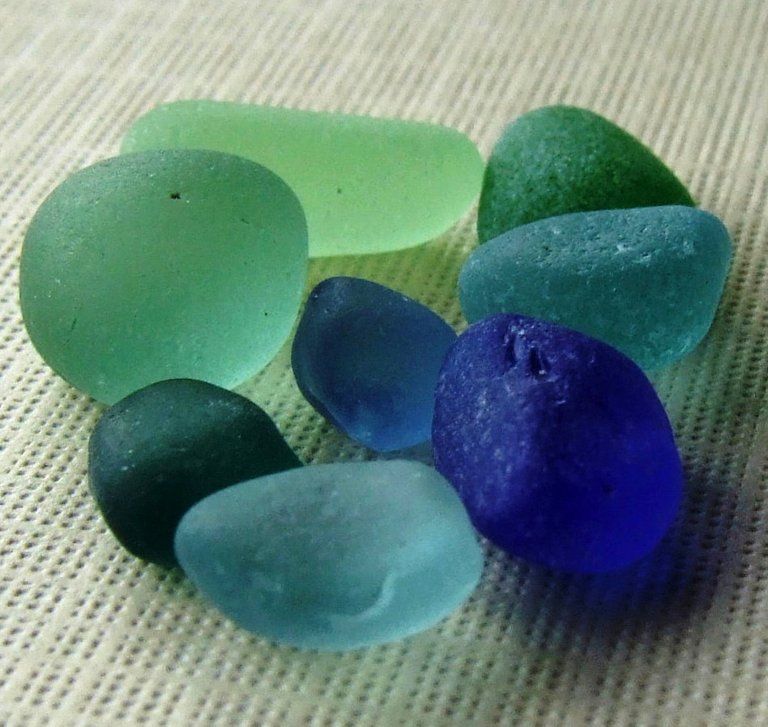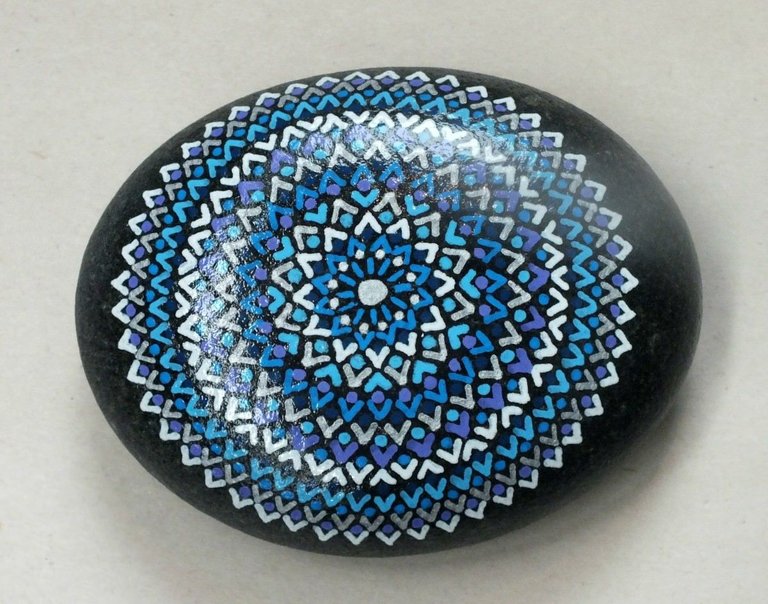Recently, I wrote a post about how being in excessively "esoteric" niches can become problematic in terms of actually being profitable, even if you're an expert and very passionate about what you're doing.
Part of the consideration when trying to turn a much loved hobby into a business is a long, hard — and objective — look at just how many clients you would need to (a) make it and (b) become successful.

Of course, "successful" is somewhat in the eye of the beholder: For some, it requires New York penthouses and executive jets, for others is merely means that you have a comfortable life doing something you like doing. Heck, right now I'm feeling very "successful" because my tiny stake of the new CUB tokens have made 30 cents on Cub DeFi since I finally figured out how to put them to work, this morning.
So it's relative.
 Beach glass
Beach glass
Back when I had my business selling "found objects" from local beaches to jewelers and artists, I topped out at around 350 customers. Given the average transaction size and the overall size of the potential market, there was really very little chance to grow much further. I did what I did well, and got pretty close to making a "modest living" for a couple of years... basically at being a "beach bum."
In that particular case, external circumstances made the decision for me, but had there not been an external downturn in the market... I would eventually have had to face the question of whether 350 clients spending $75-100 a year on average was really good enough to call the business viable and successful.
Another important consideration that often gets overlooked is your "price point" per item.
As a wise marketing exec once pointed out to me: "It's a LOT easier to sell a $1 item to 1000 people than it is to sell a $1,000 item to ONE person."
The point of what one might call "price objection" can be a very important factor in decision making. Whereas most people seem to think that my painted mandala stones are exceptional, ultimately there's a limit to how many people are ready to fork over $25-100 for a painted rock. That has little/nothing to do with whether people like the stones.

Hand painted stone by yours truly
Which brings us to the next consideration: "consumability."
Part of what made my beach finds business semi-viable was that the items I was selling were being used to create art and jewelry and so each client presented as an ongoing buyer. Conversely, the painted stones would be a one-time thing. You buy one you like, and then you're done.
Consumability is a very important consideration in assessing how many clients or customers you need: It's difficult to build much of anything with a product/service that doesn't involve repeat business. Mrs. Denmarkguy — as a spiritual counselor and coach — is in a semi-consumable field, in that she does have regular clients, but ultimately the whole idea is that if she's doing her job, her clients don't need to come back for more counseling.
Using myself as an example again, I have also spent many years in the business of selling old postage stamps to collectors. Any collecting field can be a really good gig because what you're doing — even though not consumable — lends itself well to repeat business, and sometimes repeat business for life.

Various collectible stamps
For the most part, the purpose behind this question and exploration has to with determining up front whether a hobby-ish business/project actually has the potential to be successful enough to support you... in the way you think of success.
And remember, what that means can vary considerably: Only you can decide... the "invitation" here is mostly in service of sitting down and taking a long hard look at the reality of what you want to do. It might save you a bit of disappointment and frustration, later on!
Thanks for reading, and have a great rest of your week!
How about YOU? Are you self-employed? Have you ever done an analysis on how many clients you need, and how much they each must spend, in order for you to be successful? Comments, feedback and other interaction is invited and welcomed! Because — after all — SOCIAL content is about interacting, right? Leave a comment — share your experiences — be part of the conversation!

Greetings bloggers and social content creators! This article was created via PeakD, a blogging application that's part of the Hive Social Content Experience. If you're a blogger, writer, poet, artist, vlogger, musician or other creative content wizard, come join us! Hive is a little "different" because it's not run by a "company;" it operates via the consensus of its users and your content can't be banned, censored, taken down or demonetized. And that COUNTS for something, in these uncertain times! So if you're ready for the next generation of social content where YOU retain ownership and control, come by and learn about Hive and make an account!


(As usual, all text and images by the author, unless otherwise credited. This is original content, created expressly and uniquely for this platform — NOT cross posted anywhere else!)
Created at 20210311 15:58 PST
0207/1450